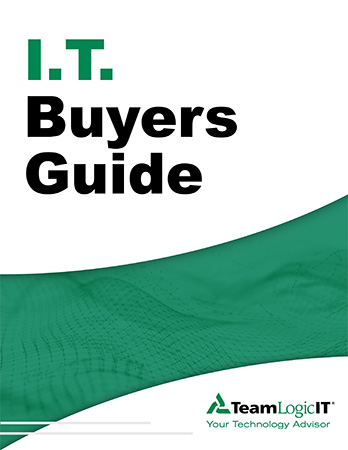
In today’s digital landscape, cybersecurity for small businesses has transitioned from a technical concern to a fundamental business imperative. As cyber threats become more sophisticated and pervasive, managed service providers (MSPs) are under increasing scrutiny to deliver comprehensive cybersecurity solutions.
If your business relies on an MSP to manage your IT infrastructure, it's crucial to assess whether they're equipped to safeguard your operations against evolving cyber threats.
A Real-World Wake-Up Call: The Marks & Spencer Cyberattack
In April 2025, British retail giant Marks & Spencer (M&S) suffered a major cyberattack that disrupted operations for nearly seven weeks and cost the company an estimated £300 million in lost revenue. The ransomware attack, attributed to the DragonForce group, targeted weaknesses in M&S's IT infrastructure and caused massive operational delays and customer data exposure.
This high-profile breach serves as a warning: even the most established companies can fall victim when their cybersecurity strategy isn’t resilient enough. For smaller organizations that depend on MSPs, this underscores a simple truth—your provider must do more than just keep the lights on.
The Rising Demand for Cybersecurity in MSP Services
Recent studies reveal that 84% of businesses now expect cybersecurity management to be part of their MSP contract, up from 65% just a year ago. This demand surge reflects a shift in mindset—from cybersecurity as a technical function to cybersecurity as a strategic priority.
Key Drivers Behind the Shift
-
Cybercrime is relentless: MSPs are reporting multiple breach attempts per client per year, and attackers are getting smarter.
-
Compliance is non-negotiable: From HIPAA and PCI DSS to the FTC Safeguards Rule, small businesses are facing big-time scrutiny.
-
Reputation is everything: One breach can erase years of trust. Your customers, partners, and stakeholders expect protection—and accountability.
Legacy MSP vs. Modern MSSP: What’s the Difference?
Many businesses are still working with legacy MSPs—providers that handle backups, antivirus, and network maintenance. These basics are important—but they’re no longer sufficient.
In contrast, a modern MSSP (Managed Security Services Provider) offers layered, strategic defense that includes:
-
24/7 threat monitoring
-
SIEM (Security Information and Event Management) tools
-
Endpoint detection and response (EDR)
-
Multifactor authentication (MFA)
-
Real-time vulnerability scanning
-
Proactive compliance support
While legacy MSPs react to problems, modern MSSPs help prevent them. And when threats do emerge, they respond with precision and speed.
What You Should Expect From a Security-Focused MSP
To ensure your business is adequately protected in 2025, your MSP should offer:
-
24/7 Monitoring and Incident Response:
Your systems should be monitored continuously, with fast action plans in place for ransomware, phishing, and data breaches. -
Cybersecurity Expertise:
Look for providers with security-specific certifications and a dedicated team that stays up-to-date on evolving threats. -
Ongoing Risk Assessments:
Vulnerability scans, penetration testing, and risk scoring should be regular—not reactive. -
Regulatory Compliance Support:
Whether you need to pass a HIPAA audit or a PCI DSS review, your MSP should help you prepare—documented, audit-ready, and aligned with current standards. -
Security Awareness Training:
Employees are your first line of defense. Your MSP should help build a culture of cyber readiness across your organization.
✅ 5 Questions to Ask Before Renewing Your MSP Contract
If your renewal date is near—or if you’re rethinking your IT partnership—ask these five questions before signing again:
-
What cybersecurity services are included in our agreement—and what’s extra?
Make sure you're not assuming protection that isn't explicitly offered. -
How will you help us stay compliant with evolving regulations?
Ask for specific references to HIPAA, PCI DSS, or any compliance framework relevant to your industry. -
What’s your average incident response time for a critical event?
Delays during a breach can cost you more than money. -
Can you show us how you've helped a client recover from a breach?
Real stories give you insight into real preparedness. -
What’s your roadmap for improving our security posture year over year?
Look for providers who offer proactive planning, not just break-fix solutions.
If Your MSP Can’t Answer These Questions, You Deserve Better
Your MSP should be a strategic partner—not just a help desk. If you're still waiting for them to raise concerns, initiate security upgrades, or offer compliance guidance, you may already be behind the curve.
Think about it this way: If your MSP isn’t actively helping you prevent the next M&S-style breach…who is?
Take Action: Secure Your Business Before It’s Too Late
Cybersecurity isn’t optional. Neither is compliance. The risks—financial, operational, and reputational—are simply too high.
We offer a FREE Network & Security Assessment designed to give small businesses and professional firms a clear view of where they stand—and where they need to be.
✔ Security gap analysis
✔ Compliance readiness checklist
✔ Strategic action plan tailored to your business
👉 Click here to book your free assessment.



